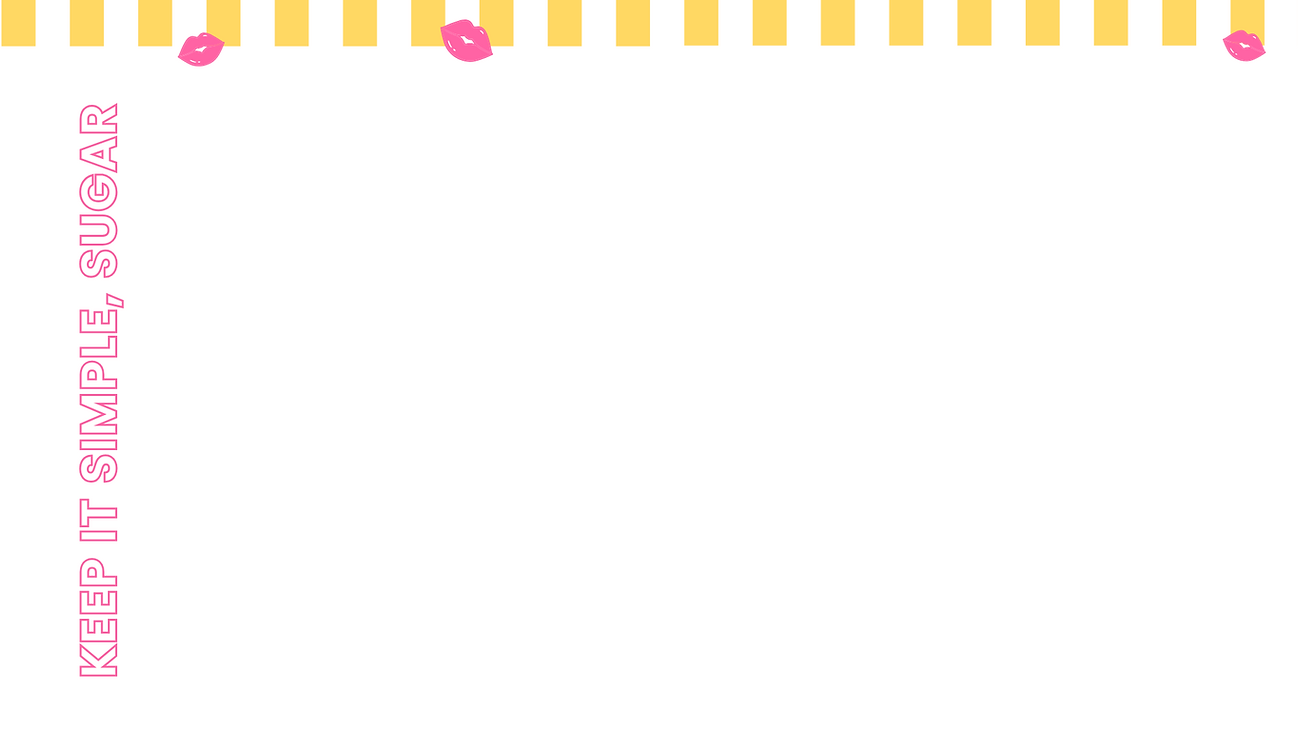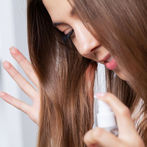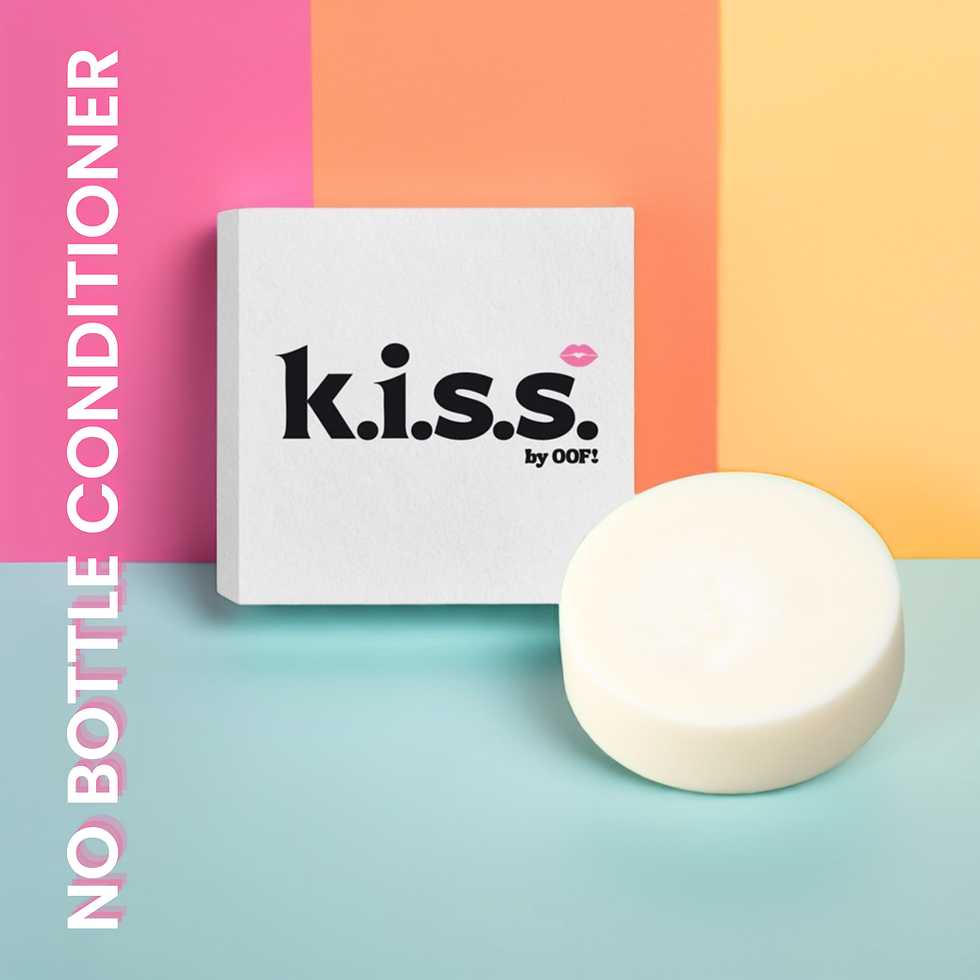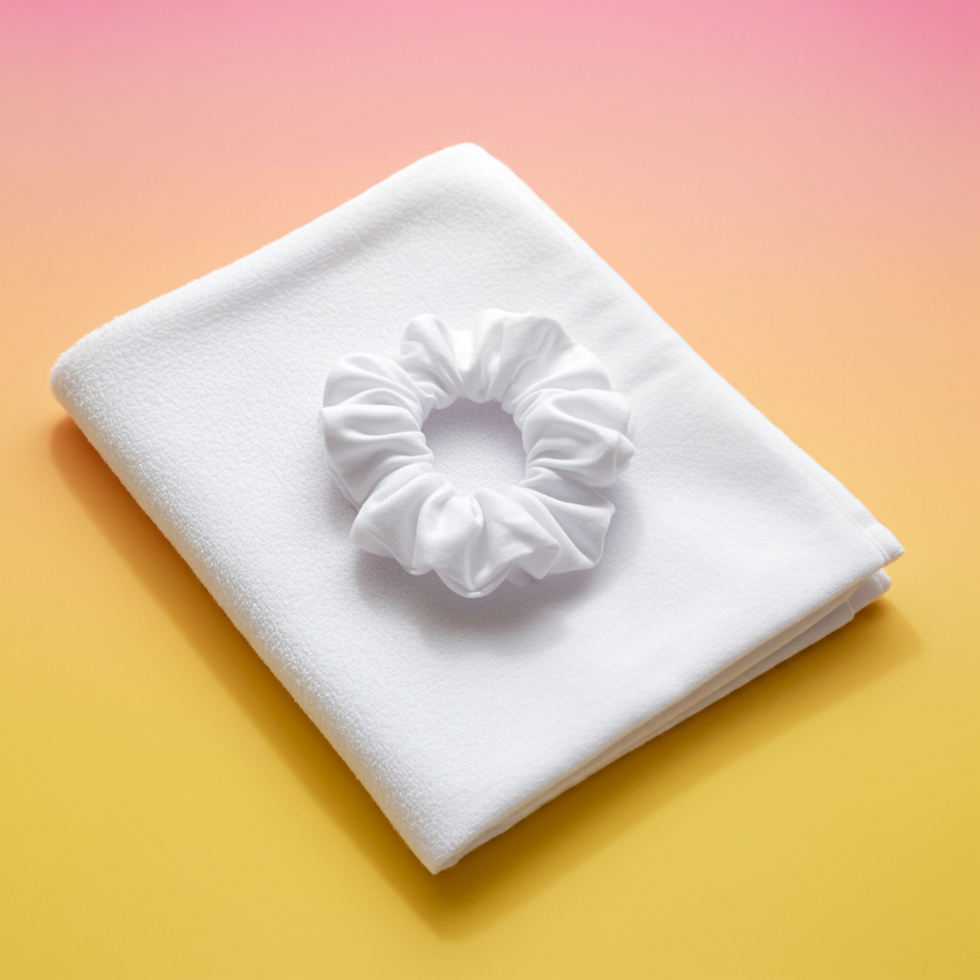Why Am I Losing My Hair? What Causes Hair Loss and What You Can Do About It
- OOF!

- Apr 19, 2025
- 7 min read
Updated: Oct 20, 2025
Real reasons from trichologists and what you can do about it.
Have you been noticing a lot more hair loss in the shower? Is your ponytail feeling much skinnier? If you've found this article, you're probably looking for answers on what could be causing your hair thinning and how to stop it.
From stress to hormones, there are many reasons you might be experiencing unusual hair loss.
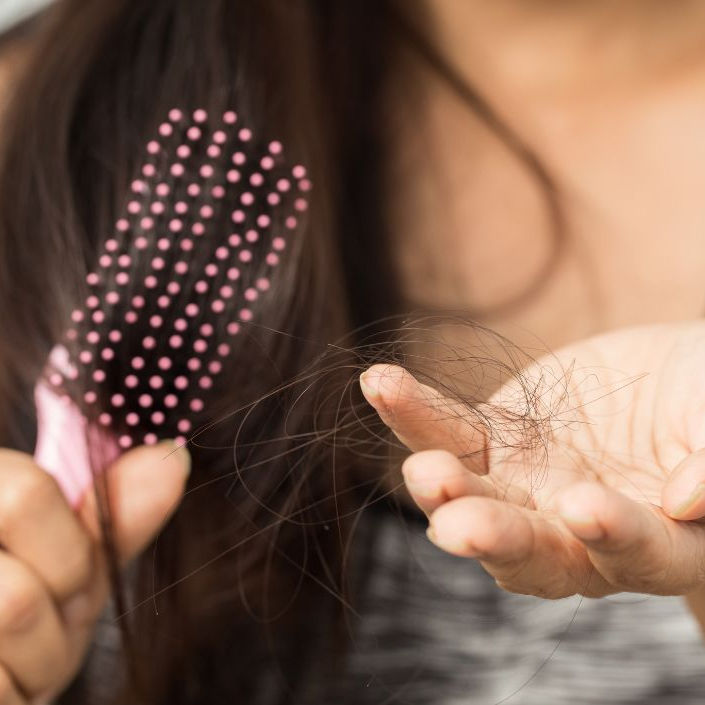
First off, you're not alone. An estimated 50% of women will experience significant hair loss at some point in their lives. But don't panic!
We're sharing the latest information from trichologist Sofia Baig of Gielly Green to answer all of your hair loss and hair health questions. We're identifying the most common reasons for hair loss, addressing your FAQs, and sharing effective products and ingredients.
Understanding the Causes of Hair Loss and Thinning
Causes of Hair Loss
Many people will experience hair loss at some point. This is not surprising considering all the factors that contribute to it. Our hair grows in a four-step cycle. It grows, rests, falls, and then regenerates.
This process can be easily disrupted—especially since numerous genes and hormones play a role.
When to Seek Help
If nothing seems to trigger your hair loss, or if you're experiencing heavy thinning, we recommend seeing a dermatologist or trichologist.
A Trichologist Explains the Reasons Behind Hair Loss
A trichologist is a hair and scalp expert who takes a holistic approach to hair loss. This involves looking into your health history, lifestyle, genetics, and environment. Here is what we have discovered about hair loss and hair thinning.
1. Stress Causing Hair Loss
Stress can have a big impact on your hair growth cycle. Both sudden traumatic events and ongoing anxiety can cause issues.
When stressed, your body produces a hormone called cortisol. High cortisol levels can disrupt the normal hair growth cycle and prematurely push hair from the growth phase to the resting or shedding phase.
This condition is known as telogen effluvium. It often leads to rapid and heavy hair thinning a few months after a stressful period. This issue mainly affects the scalp's top area.
If you hair loss is from stress, the scalp will be healthy and there will be no other symptoms like rashes or flaking. Fortunately, stress-related hair loss is often temporary. It can improve as stress levels decrease. However, excessive shedding might last for six to nine months.
2. Diet and Losing Hair
If your body lacks needed nutrients, it can redirect energy from hair growth to vital organs. You need a balanced intake of protein, iron, vitamins, and fatty acids to support healthy hair.

The challenge? You might not notice any hair loss issues for a few months. Hair goes through an entire cycle before you see any thinning or loss.
3. Changes in Hormones Can Cause Hair Loss
Some women are more sensitive to hormonal shifts than others. Conditions such as starting or changing birth control, menopause, and pregnancy can all impact estrogen and progesterone levels.
Thyroid imbalances can also disrupt hair growth. The thyroid produces hormones that control many body functions, including metabolism and hair growth.
If you suspect hormones are causing your hair issues, consult your doctor for proper evaluation and treatment options. At least, if you're dealing with postpartum hair loss, you have a cute little baby to focus on!
4. Medical Conditions or Genetics
If you lead a balanced life, eat healthily, and haven’t experienced major hormonal changes or pregnancies, but still have hair loss, it’s essential to see a professional.
Hereditary hair loss myths state it only comes from one side of the family. Nope! Hair loss is influenced by multiple genes from both sides. If relatives on either side had hair thinning, there’s a higher chance you may also face it.
What Can I Do to Help with My Hair Loss or Thinning Hair?
Preventing and Treating Hair Loss from Stress
Reflect on your life for the past two to three months. If you faced a huge stressor, that may align with your hair loss. Fortunately, stress-related hair loss is often reversible if addressed early.
Incorporate natural stress-relief methods into your routine. Deep breathing exercises can quickly calm your nervous system. For guided breathwork, I recommend Breathing with Sandy on Youtube. I use his sleep-guided video. It has been super helpful for going to sleep with less anxiety.
Try going for a walk outdoors, practicing yoga, or stretching. Herbal teas like chamomile can soothe. I personally sip chamomile tea in the evening to help calm my anxious mind.
Journaling, listening to calming music, or laughing with friends can also elevate your mood. Lastly, connecting with trusted people can help alleviate stress.

Diet Choices for Your Treating Hair Thinning and Loss
The saying "you are what you eat" definitely rings true regarding nutrition and hair. Nutrients from food significantly affect hair follicle health, hair growth cycles, and cell turnover. A nutrient-deficient diet can lead to hair loss and poor hair health.
So, what should you include for hair health and growth?
Protein
The majority of your hair consists of keratin. Collagen supports skin health around follicles and encourages new growth.
A protein-deficient diet can slow hair growth and weaken your hair. The body breaks down consumed protein into amino acids, which make keratin and collagen.
Lean meats, fish like chicken, turkey, and salmon are excellent protein sources. Eggs also provide protein, biotin, zinc, selenium, and more vitamins essential for hair health. If you’re plant-based, opt for Greek yogurt, nuts, beans, lentils, and tofu.
Fatty Acids
Omega-3 fatty acids are crucial for a healthy scalp and strong, hydrated hair. Found in salmon, herring, and mackerel, these fish should be included in your diet a couple of times a week. Omega-3s may prevent dry scalp and promote hair growth.
Oils high in essential fatty acids include argan, jojoba, flaxseed, pumpkin seed, and castor oils. These nourish the scalp, reduce inflammation, and support strong hair. Massaging these oils directly into your scalp can provide benefits. .
Iron
Iron aids in producing hemoglobin, which carries oxygen to hair growth-supporting cells. Low iron levels result in insufficient oxygen, impeding growth or causing hair loss. Telogen effluvium often links to iron deficiency, causing rapid hair loss.
The good news? Hair generally regrows once iron levels normalize. Consuming iron-rich foods like red meat, beans, spinach, and dark chocolate or taking supplements can elevate your iron levels.
Vitamin C
Vitamin C is fantastic for your scalp and hair. It's an antioxidant that boosts collagen production, aids iron absorption, and combats bacteria that cause dandruff.
Include citrus fruits, bell peppers, strawberries, kale, and herbs like thyme in your diet for more Vitamin C. Just one cup of strawberries provides over 100% of your daily Vitamin C!
The B Vitamins
Vitamin B12 is crucial for DNA production and red blood cells, which nourish hair follicles and stimulate growth. Since the body cannot generate B12, it must come from diet or supplements.
Other B vitamins are important too. B6 supports hair follicle health and melanin production, while Biotin (B7) strengthens hair. Folate (B9) helps produce healthy cells, including hair follicles.
Pantothenic acid (B5) promotes healthy growth by enhancing scalp blood circulation and managing stress responses, reducing stress-induced hair thinning.
To incorporate B vitamins, consume fish, meat, dairy products, eggs, and plant-based foods such as leafy greens, nuts, beans, and oatmeal.
What About Hormonal Hair Loss?
Vitamin D helps regulate hormones, including estrogen and testosterone. Spending time outdoors or taking a vitamin D supplement can help maintain healthy levels, especially in regions with limited sunlight.
If facing significant hormonal fluctuations, it's essential to consult a doctor. They can assist in identifying any underlying issues and recommend suitable natural or medical treatments.
Frequently Asked Questions About Hair Loss and Hair Thinning
Q1. How do I know if I’m losing more hair than I should be?
It's normal to shed about 50 to 100 hairs a day. However, if you're noticing more hair than usual in your brush, shower drain, or pillow—especially in clumps—it could be a sign of excessive hair loss. Look out for a thinner ponytail, a more visible scalp, or patchy thinning around your temples.
Hair loss from areas like your eyebrows or lashes may indicate a health issue. If the shedding seems excessive or continues for a while, consult with a doctor or trichologist.
Q2. What is the difference between fine hair and thinning hair?
Fine hair refers to the individual strands' texture (thick or fine) while thinning hair refers to the overall hair density on your scalp. Many confuse these terms.
Fine hair can feel like less than a thread of sewing. Thinning hair means a reduction in the hair density on the scalp.
As you age, it's normal for hair to become less dense. Thinning starts with the part and sides before gradually affecting the top of your head.
Q3. Can lack of sleep cause hair loss and slow hair growth?
Indeed! Your amount and quality of sleep can greatly influence your hair growth cycle. During deep sleep, your body goes into repair mode. It restores cells, including hair follicle cells, and releases essential growth hormones.
Good sleep also keeps stress hormones in check. Unmanaged stress can lead to hair loss as it might push hair follicles prematurely into resting and shedding phases.
Q4. Which vitamin deficiencies cause hair loss?
Healthy hair requires a mix of nutrients and vitamins. Lack of nutrition can hinder how hair is formed and the strength of follicles. Studies link nutrient deficiencies to common hair loss types such as telogen effluvium and androgenic alopecia.
Maintaining a balanced diet with whole foods is crucial for hair health. Key nutrients include protein, iron, zinc, vitamin D, biotin, B vitamins, and omega fatty acids.
Q5. What about hair care for hair loss?
If you're worried about hair loss, wash your hair 2 to 3 times a week. This frequency keeps your scalp clean without stripping natural oils. Over-washing can dry out the scalp, while not washing enough can lead to buildup that clogs follicles.
Consider gentle, sulfate-free shampoo options and prioritize scalp care, such as massages.
Noticeable changes in hair drying routines may help improve results too. Switch to a cotton, jersey knit t-shirt material like the OOF! HALO hair towel, which is gentler on your hair.
Final Word
I hope this information about hair loss and thinning has been helpful. Remember, there are usually answers to hair loss; it can be frustrating to find them. Focus on eating healthily, reducing stress, and monitoring your hair loss levels before jumping to conclusions about serious issues.
If you're genuinely concerned, make an appointment with a doctor or trichologist. Hair loss is more common than many women realize, and numerous solutions are available.
If you have any questions or comments, we would love to hear from you!
XOXO,
Annaleise






